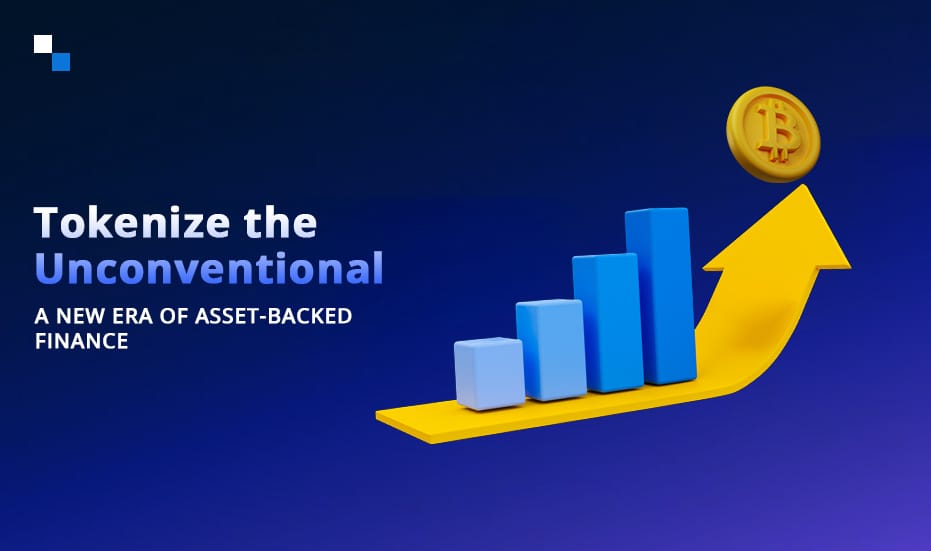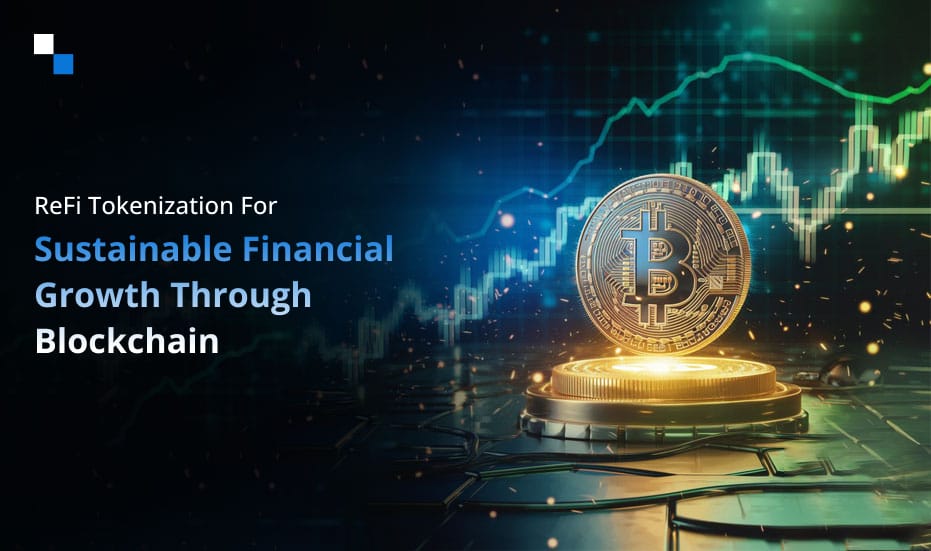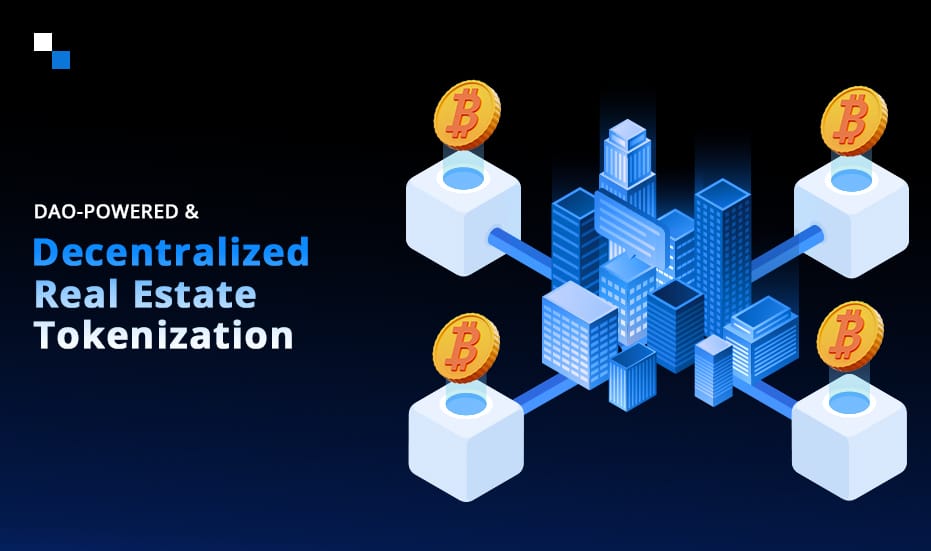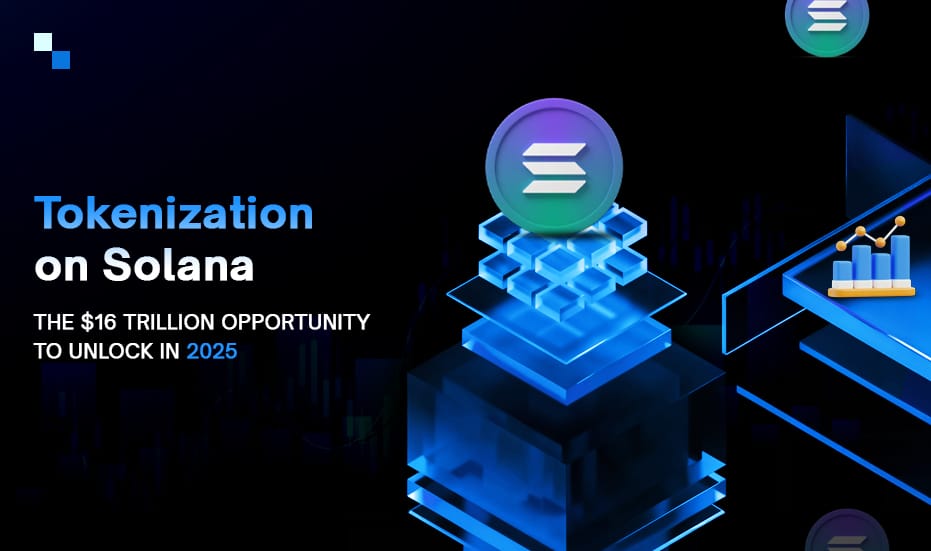
A Beginner’s Guide to Bitcoin Smart Contracts and Their Real-World Applications
December 16, 2024
TRC20 Wallet & Crypto Payment Gateway Solutions: Use Cases and Benefits
December 16, 2024Tokenization is transforming the financial landscape. While it began with more traditional assets like stocks, bonds, and real estate, it has now evolved into a much broader concept, encompassing a wide array of unconventional assets. These assets, which were previously difficult to trade or access, are now being reimagined through the use of blockchain technology. By converting them into digital tokens, tokenization unlocks new investment opportunities, enhances liquidity, and fosters innovation.
In this blog, we’ll dive into what unconventional assets are, explore examples of assets being tokenized today, and look at potential future tokenization trends.
What are Unconventional Assets?
Unconventional assets are anything that doesn’t fit into the traditional categories of financial instruments like stocks, bonds, or commodities. These assets often possess unique characteristics, such as being illiquid, difficult to value, or intangible. Tokenizing these assets opens up a world of possibilities by allowing them to be broken into smaller, more tradable units. Through tokenization, these once underutilized or overlooked assets can now be bought, sold, and invested in with ease.
Examples of Unconventional Assets Being Tokenized
While tokenization is most commonly associated with real estate, art, and collectibles, there is a whole host of other unconventional assets that are now being explored and tokenized. Below are some of the fascinating examples of unconventional assets that are being tokenized:
1. Intellectual Property (IP)
Intellectual property, which includes patents, trademarks, copyrights, and even domain names, is one of the most exciting areas for tokenization. IP rights can be tokenized to create fractional ownership, enabling more people to invest in and profit from innovations. For example:
- Patents and Trademarks: Tokenizing patents and trademarks would allow creators to sell fractional ownership or license their rights, creating new streams of income.
- Copyrights: Musicians, authors, and filmmakers can tokenize copyrights, allowing them to sell shares in future royalties. This can empower artists to receive funding upfront while enabling investors to share in the success of creative works.
- Domain Names: Tokenizing valuable internet domains can allow domain owners to sell fractional stakes in highly sought-after domain names.
Tokenizing IP makes it easier to monetize these assets and open up investment to a broader audience of creators and investors.
2. Carbon Credits
With the growing global push to combat climate change, tokenizing carbon credits is becoming a game-changer. Carbon credits represent the right to emit a certain amount of carbon dioxide, and they are crucial for industries aiming to reduce their carbon footprint. By tokenizing these credits, their trading becomes more efficient, transparent, and accessible.
The tokenized carbon credit market would not only incentivize companies to reduce emissions but also allow smaller players to participate in the carbon markets. This process could further support global environmental initiatives and attract investors interested in supporting climate action.
3. Sports Memorabilia
Tokenization has found its way into the world of sports memorabilia. Think about iconic jerseys, game-used equipment, or autographed items from legendary athletes. These tangible items are often of immense sentimental and historical value but can be difficult to trade in a liquid and transparent way.
By tokenizing sports memorabilia, fans can own and trade digital representations of these rare items, allowing collectors to purchase shares of valuable memorabilia without having to buy the entire item. The collectibles market, long dominated by niche collectors, is now opening up to a global audience. Tokenization allows for more liquidity in an area that was previously illiquid, creating new investment opportunities for sports fans worldwide.
4. Luxury Goods
Luxury goods like watches, fine jewelry, and high-end handbags are increasingly being tokenized. These assets are not only expensive but often hard to liquidate without losing value due to their exclusivity. Tokenization allows fractional ownership of these luxury goods, meaning that investors can buy shares of expensive watches, rare jewelry, or even limited-edition cars.
In addition, tokenizing luxury goods allows for enhanced tracking of their provenance, reducing the risk of counterfeiting in the market. As a result, consumers and investors are provided with more confidence and security when buying luxury items.
5. Vintage Cars
Classic cars have always been a symbol of wealth and status, but the high price tags and illiquid nature of these assets make them difficult to access for most investors. However, tokenization is changing the game. Vintage cars are now being broken into smaller, tradable units, allowing investors to purchase fractional shares in these high-value vehicles.
By tokenizing classic cars, the market becomes more accessible and liquid, allowing a broader pool of investors to participate in this lucrative asset class. Car collectors, too, benefit from the added transparency and efficiency of tokenized ownership.
6. Wine Vineyards
For those who love wine, tokenization is making it possible to invest in entire wine vineyards. Wine production is a multi-year process, and vineyards can be expensive to invest in directly. By tokenizing vineyard ownership, individuals can buy shares of a vineyard, participating in the long-term growth of wine production without needing large amounts of capital.
This approach can create new opportunities for the wine industry, especially for smaller vineyards that have difficulty attracting traditional investment. Investors, on the other hand, benefit from diversification and the potential for high returns as the value of wine production grows over time.
7. Music Royalties
Another unconventional asset that’s being tokenized is music royalties. In the past, musicians had limited access to capital, often needing to give up a large percentage of future royalties to finance their projects. Tokenizing music royalties allows musicians to sell fractional shares in their future earnings from streaming, licensing, and other revenue streams.
Fans can even get involved by purchasing tokens representing shares in their favorite artist’s future royalties. This form of tokenization offers artists a new way to raise funds while sharing their financial success with their supporters.
8. Future Revenue Streams from Movies and TV Shows
Similar to music royalties, movie and TV show royalties can now be tokenized. Investors can buy tokens representing a share of future earnings from box office sales, streaming rights, or merchandising. By tokenizing these revenue streams, filmmakers and studios can raise capital for their projects, while investors can tap into the lucrative entertainment sector without needing direct ownership of a film or show.
9. Gaming Assets
With the rise of the gaming industry, in-game assets like skins, characters, and other virtual items are increasingly being tokenized. Tokenization allows gamers to trade, sell, or hold virtual goods outside of the game environment. This transforms digital gaming assets into real-world value and creates new opportunities for gamers to profit from their virtual achievements.
These tokenized assets also introduce new forms of ownership and economies within games, further expanding the scope of tokenization into the gaming world.

The Future of Tokenizing Unconventional Assets
The examples above represent just the tip of the iceberg when it comes to unconventional assets being tokenized. In the future, we could see even more sectors exploring tokenization, ranging from intangible assets like personal data to rare natural resources like water rights. As technology continues to advance, tokenization has the potential to transform industries and democratize access to previously illiquid or inaccessible assets.
By lowering the barriers to entry, increasing liquidity, and enabling fractional ownership, tokenization of unconventional assets will create a more inclusive financial system, where anyone with an internet connection can participate in asset-backed investment opportunities.
Final Words
In conclusion, Asset tokenization is unlocking an entirely new era of asset-backed finance, offering investors opportunities that were once unimaginable. As more unconventional assets enter the blockchain ecosystem, the financial landscape will become more dynamic, inclusive, and efficient, providing exciting prospects for both investors and asset owners alike.




